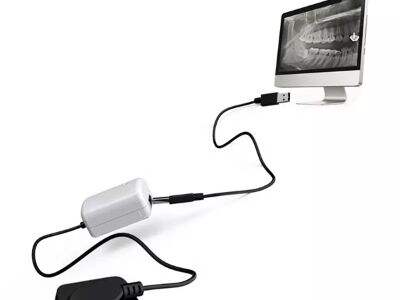As a dentist, it is critical to have proper tools to treat the patients. A key piece of equipment is a dental X-ray unit and sensor. These rare utilitarian instruments assist in capturing images of your patients' teeth and gums. It enables you to detect and solve dental issues.
There are several things to consider when searching for the right dental X-ray unit and sensor. First, consider how large your practice is and how many patients you see each day. This goes a long way in helping you identify the best type of X-ray unit and sensor that will suit your needs well.
Dental Units and Sensors: Understanding Your Technology Options
All dental xray units & sensors are not the same & they all have good points and bad points for each type. Traditionally film xray sensor units take pictures using film. The digital X-ray units use sensors to take digital pictures. Digital X-ray units are useful because they are less labor-intensive and produce very sharp images.
Advisory for Choice of Dental X-ray Unit and Sensor in respect to Cost, Quality, and Efficacy
Consider the cost, quality and functionality of the dental X-ray unit and sensor you choose. Cost matters, but you need to consider how clear the photos will be, too. Images that are clear are very important to assist you in obtaining the correct diagnosis and treatment plan.
GuidanceChoosing the Right Dental X-ray Unit and Sensor for Your Practice
Here are helpful tips to help decide which dental X-ray unit and sensor is best for your practice:
Consider the practice's size and layout to determine the optimal location for the digital xray sensor.
Go on to select a reputable manufacturer who manufactures high quality dental imaging equipment.
Look for the warranty and service support for the X-ray unit and sensor.
Check out the training and support that the manufacturer provides to ensure that you and your staff are using the equipment optimally.
A Guide for Dentists
In summary, choosing the appropriate dental X-ray unit and sensor is a crucial decision. Considering these factors (size of your practice, technology choices, the cost and quality of care and whether it works) will help you make an educated decision for the benefit of you and your patients. Consider consulting an authority and follow the above-mentioned guidelines in order to select a dental X-ray unit and sensor suitable for you. With the proper instruments at your disposal, you will be able to provide your patients with optimal care and streamline the operations of your practice.
 EN
EN
 AR
AR
 HR
HR
 CS
CS
 DA
DA
 NL
NL
 FI
FI
 FR
FR
 DE
DE
 HI
HI
 IT
IT
 JA
JA
 KO
KO
 PT
PT
 RO
RO
 RU
RU
 ES
ES
 SV
SV
 LV
LV
 SR
SR
 SK
SK
 UK
UK
 VI
VI
 SQ
SQ
 TH
TH
 TR
TR
 FA
FA
 MS
MS
 HY
HY
 KA
KA
 UR
UR
 BN
BN
 LO
LO
 LA
LA
 MN
MN
 NE
NE
 SO
SO
 MY
MY
 UZ
UZ
 KY
KY


